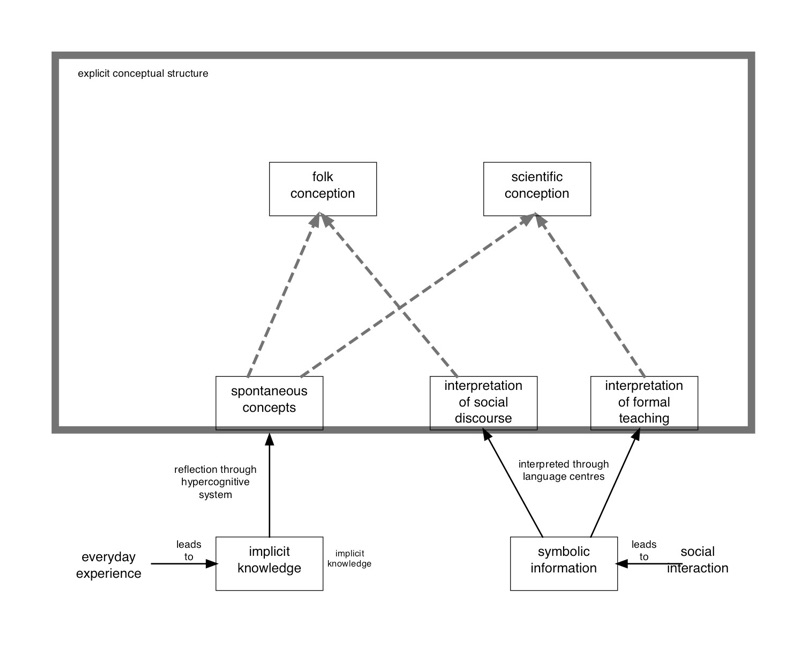Educational Research Methods

A site to support teaching and learning...

Melded concepts
Vygotsky acknowledge the difference between spontaneous concepts developed in response to direct experience of the material world (e.g. that objects fall if not supported) and academic (sometimes translated scientific) concepts acquired through cultural mediation, using symbolic systems such as language (someone might be taught Newton’s theory of gravity by another person). What is sometimes missed when using this distinction, is that Vygotsky believed that these types of concept developed through interaction with each other:
“Vygotsky’s model then refers to a high level of interaction between spontaneous and academic concepts and the development of each of these types of concepts towards a more hybrid state: spontaneous concepts deriving from concrete experience acquiring abstract nature and academic concepts acquiring concrete referents. … Vygotsky’s description of this process maintains the labels of spontaneous and academic for the different types of concept that are interacting. Yet the implication of his account is that this distinction cannot be fully retained. Rather, by relating the academic concepts mediated through social processes to the spontaneous concepts developed through direct experience of the natural world, new conceptual structures form that subsume both. Through such a process people develop concepts that are hybrid forms: melded concepts…This suggests that the distinction between spontaneous and academic concepts relates primarily to the origins of concepts, but due to the dynamic nature of memory this distinction may afterwards be broken down by the interactions Vygotsky describes. In some cases there might be considerable integration of what begins as a purely spontaneous concept with what has been learnt through verbal instruction. Through what might be termed ‘interconceptualisation’, what were originally discrete spontaneous and academic concepts evolve into a melded concept that draws upon both an experiential base in direct experience of the natural world and culturally mediated learning relying on communication through a form of language.” (Taber, 2013: 293-294)
Taber, K. S. (2013). Modelling Learners and Learning in Science Education: Developing representations of concepts, conceptual structure and conceptual change to inform teaching and research. Dordrecht: Springer.
This is a personal site of Keith S. Taber to support teaching of educational research methods.
(Dr Keith Taber is Professor of Science Education at the University of Cambridge.)
2015-2019

